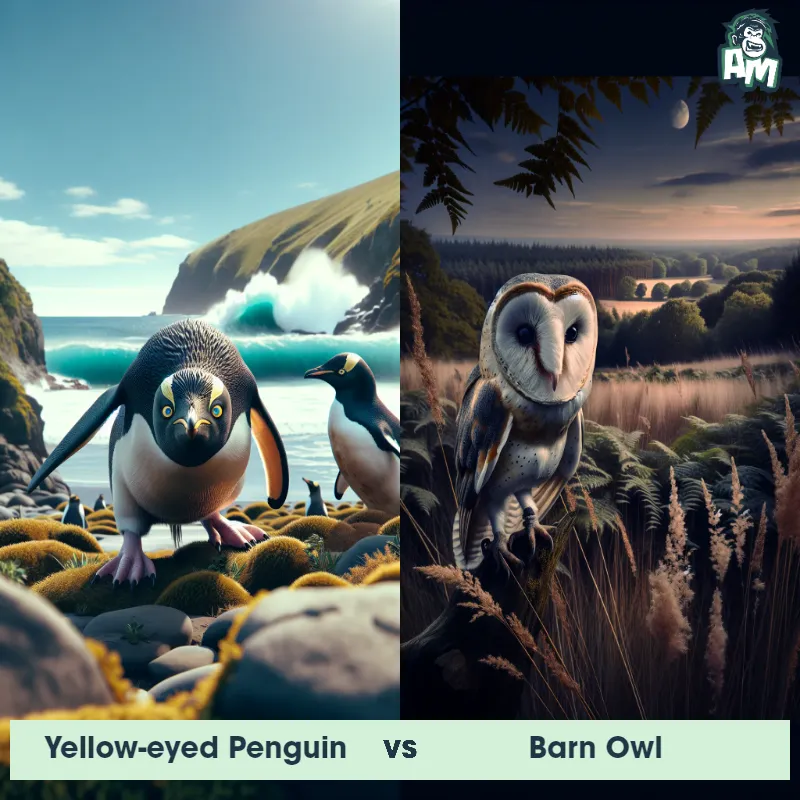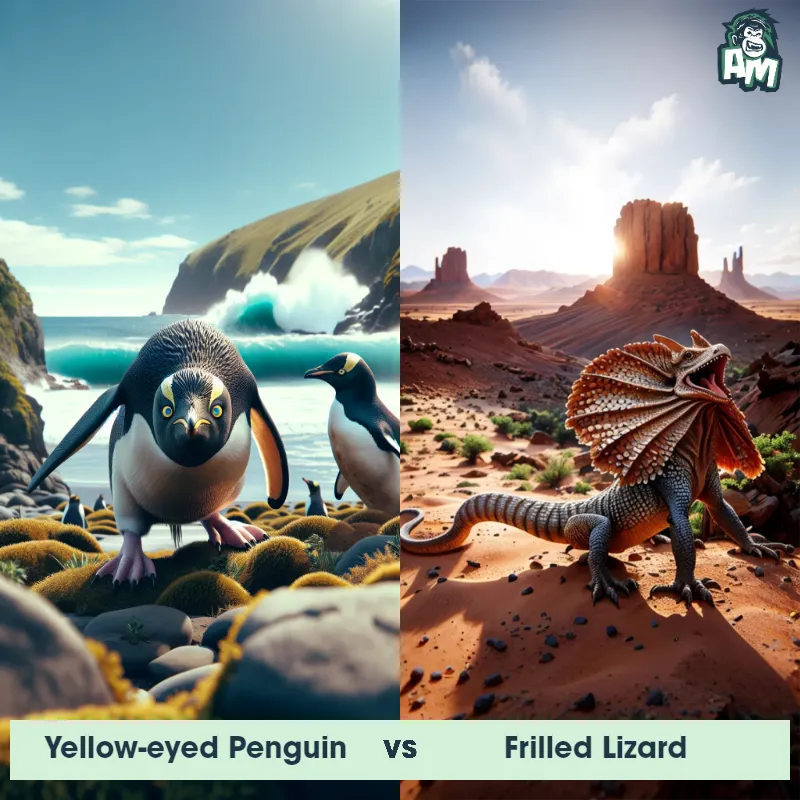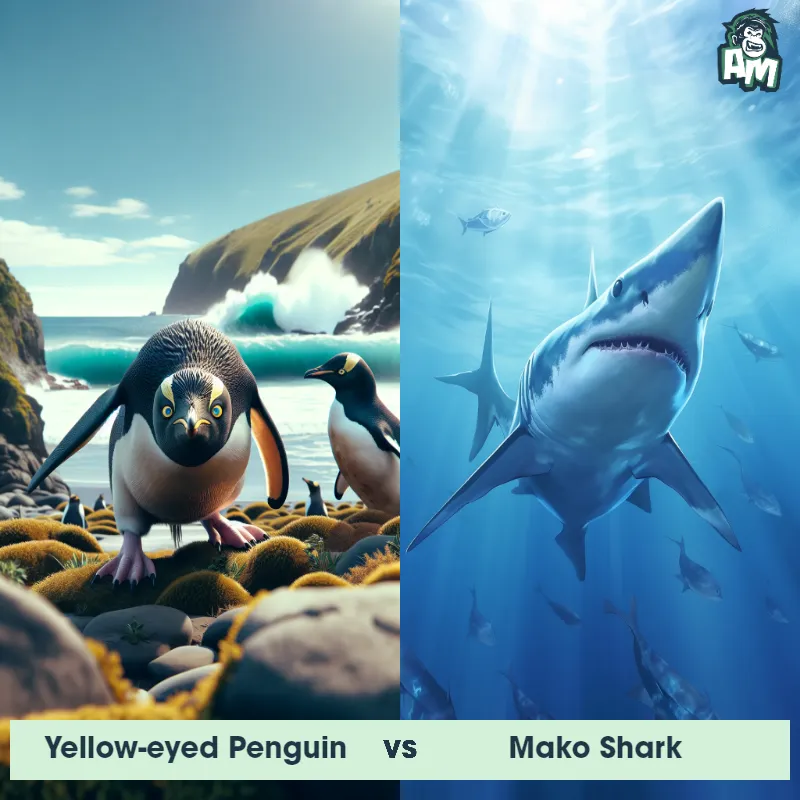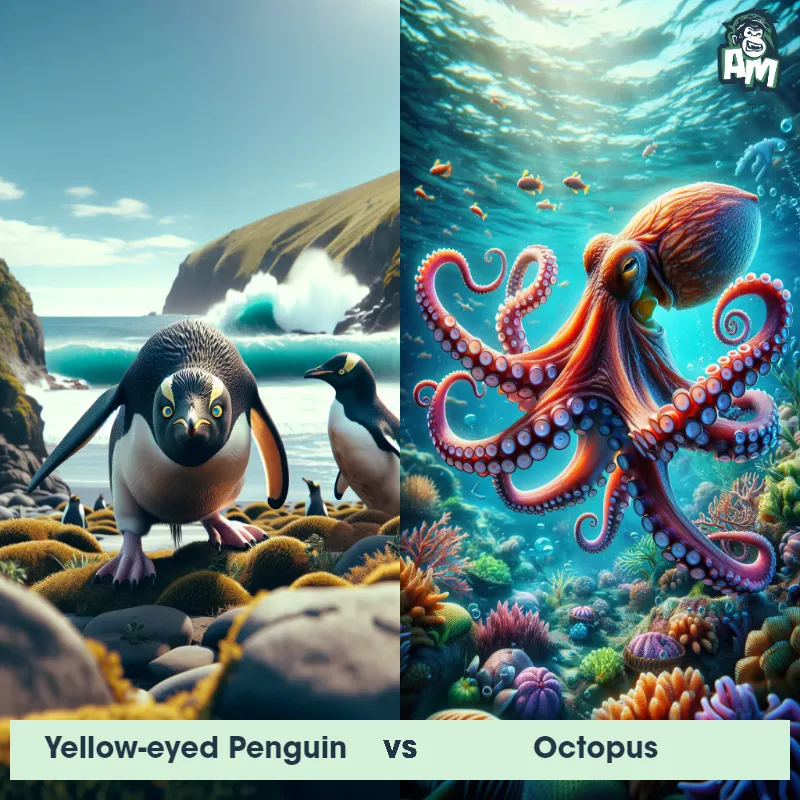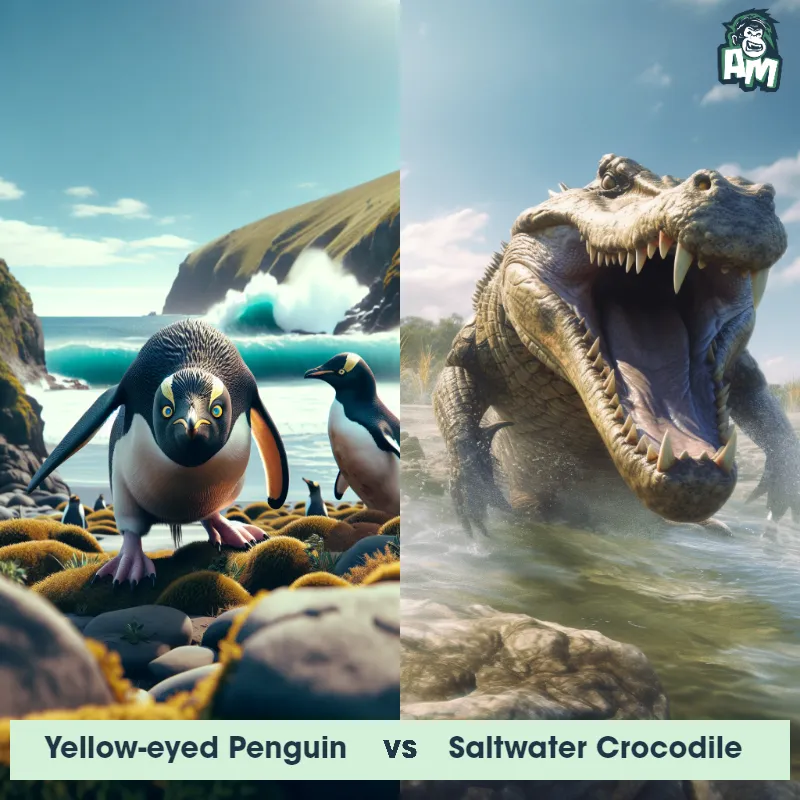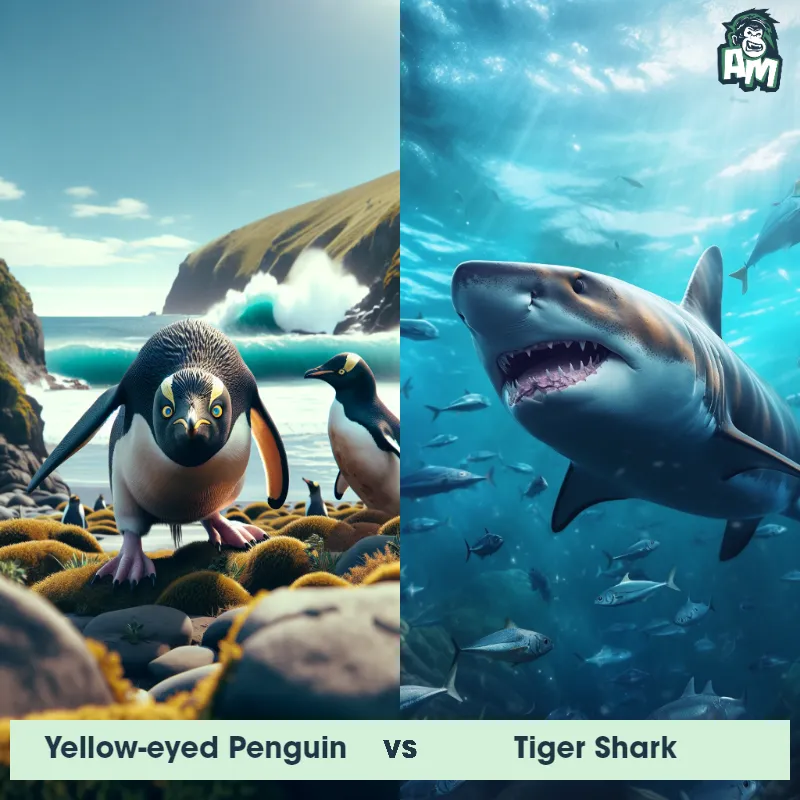The Yellow-Eyed Penguin
The Yellow-Eyed Penguin, also known as the Hoiho, is a unique and endangered species native to New Zealand. It is one of the rarest and most distinct penguin species worldwide. These penguins are characterized by their medium-sized stature, reaching an average height of 65 to 70 centimeters. They have a vibrant yellow band that encircles their eyes, giving them their common name. Their backs are colored blue-gray, while their bellies are white. The Yellow-Eyed Penguin is known for its distinctive waddle and its ability to leap out of the water onto rocky shores with surprising agility.

| Yellow-Eyed Penguin | |
|---|---|
| Size | 24 to 29 inches (61 to 74 centimeters) |
| Weight | 4 to 7 kilograms (8.8 to 15.4 pounds) |
| Speed | 5mph (8km/h) |
| Key Strength | N/A |
| Biggest Weakness | N/A |
| Scientific Name | Megadyptes antipodes |
| Family | Spheniscidae |
| Habitat | Forest undergrowth or sand dunes |
| Geography | Native to New Zealand |
| Diet | Fish and marine invertebrates |
| Lifespan | 6 years - 12 years |

The Yellow-Eyed Penguin
The Yellow-Eyed Penguin, also known as the Hoiho, is a unique and endangered species native to New Zealand. It is one of the rarest and most distinct penguin species worldwide. These penguins are characterized by their medium-sized stature, reaching an average height of 65 to 70 centimeters. They have a vibrant yellow band that encircles their eyes, giving them their common name. Their backs are colored blue-gray, while their bellies are white. The Yellow-Eyed Penguin is known for its distinctive waddle and its ability to leap out of the water onto rocky shores with surprising agility.
![[object Object] Gif](https://tenor.com/view/yellow-eyed-penguin-compilation-penguin-yellow-new-zealand-documentrary-gif-13162013869245428730.gif)
Fun Fact: The Yellow-Eyed Penguin is not only the rarest penguin species in New Zealand but is also one of the most endangered species globally, with a population of fewer than 2,000 individuals.
| Yellow-Eyed Penguin | |
|---|---|
| Size | 24 to 29 inches (61 to 74 centimeters) |
| Weight | 4 to 7 kilograms (8.8 to 15.4 pounds) |
| Speed | 5mph (8km/h) |
| Key Strength | N/A |
| Biggest Weakness | N/A |
| Scientific Name | Megadyptes antipodes |
| Family | Spheniscidae |
| Habitat | Forest undergrowth or sand dunes |
| Geography | Native to New Zealand |
| Diet | Fish and marine invertebrates |
| Lifespan | 6 years - 12 years |
Yellow-Eyed Penguin Matchups
We use AI to simulate matchups between the Yellow-Eyed Penguin and other animals. Our simulation considers size, strength, and natural predatory behaviors to determine the most likely outcome.
Yellow-Eyed Penguin: Diet, Predators, Aggression, and Defensive Behaviors
What do Yellow-Eyed Penguins eat?
Yellow-Eyed Penguins primarily feed on fish, such as blue cod, opalfish, and sprat, as well as squid and red cod. They are adept hunters underwater, using their streamlined bodies to navigate through the water in search of food.
Do Yellow-Eyed Penguins have any predators?
The main predators of Yellow-Eyed Penguins are sharks, seals, and sea lions. Additionally, land-based predators such as feral cats, dogs, and stoats pose a threat to their eggs and chicks.
Are Yellow-Eyed Penguins aggressive?
Yellow-Eyed Penguins are not known to be particularly aggressive towards humans or other animals. They are typically shy and non-confrontational, preferring to avoid conflict if possible.
Do Yellow-Eyed Penguins engage in fights?
Yellow-Eyed Penguins may engage in fights or disputes over territory or mates, especially during breeding season. These interactions can include vocalizations, physical displays, and even physical combat if necessary.
How do Yellow-Eyed Penguins defend themselves?
Yellow-Eyed Penguins primarily rely on their speed and agility in the water to evade predators. They are also known to vocalize loudly to alert others of potential threats and may attempt to peck or use their flippers to defend themselves if necessary.
What is the biggest weakness of Yellow-Eyed Penguins in a fight?
Despite their speed and agility in the water, Yellow-Eyed Penguins are vulnerable to land-based predators due to their relatively slow movements on land. This makes them easy targets for animals such as feral cats and dogs that can quickly catch up to them on solid ground.
Fun Fact: Unlike most penguin species, the Yellow-Eyed Penguin is primarily a solitary bird, preferring to live and hunt alone instead of forming large colonies.
Fun Fact: Yellow-Eyed Penguins have a fascinating and complex courtship ritual, where the males perform a variety of displays and vocalizations to attract a mate. They also engage in preen-waving, a behavior in which they stretch their flippers high above their heads while flicking their head backward. This unique display is believed to advertise their fitness and attract potential mates.



